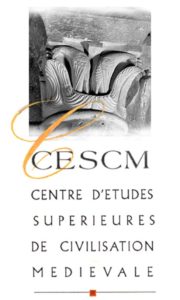Préambule à une étude sur l'hérésie et la traduction biblique au Moyen Âge et à l'aube de la modernité
Résumé
The origins of the complex interplay linking heresy and medieval translation of the Bible may be identified in the ambiguous French cultural context of the 12 th century. Later developments such as the Lollards, the Hussites, and the Reformation followed the pattern established by the Waldensians and the followers of Lambert the Stutterer, but they were not mere avatars, in a chain of dissident movements. The situation appears to be different at the beginning and at the end of this chain, in the case of French literature, and in the Ruthenian or Romanian one. There is an endless oscillation between high-prestige and low-prestige levels of culture, linked with the scholastic or academic milieu and that of popular culture. Texts circulated from one level to another and from one linguistic area to the other. Franciscans and Dominicans also played an important role in the creation of religious texts and biblical translations, leading to odd and ambiguous situations in the Hungarian or Romanian cases. The same happened in Ruthenia, under the influence of the Benedictine Glagolites. There may be a link between the Central European and early French experiments, but the original phenomenon had no dissident undertones. The Church never forbade the translation of the Bible, only translations linked to the person of a certain heretic, and did not accept the use of vernacular translation in preaching, where a Latin sacred text had to be used. There was a preference for the addition of an explanatory apparatus or canonical commentaries in those translations, and this is one of the most characteristic features of early French translations. Because the Old Testament was a book of history, vernacular sacred texts were often accompanied by profane stories, to the point that French influence can be traced through the pan-European circulation of profane subjects as well. The social aspects of the phenomenon are less clear, as there were various textual communities, with various priorities, united only by a common interest in the use of the vernacular language. The current study is a foray into a grey area that needs to be analysed in future studies.
Domaines
Littératures
Origine : Accord explicite pour ce dépôt
